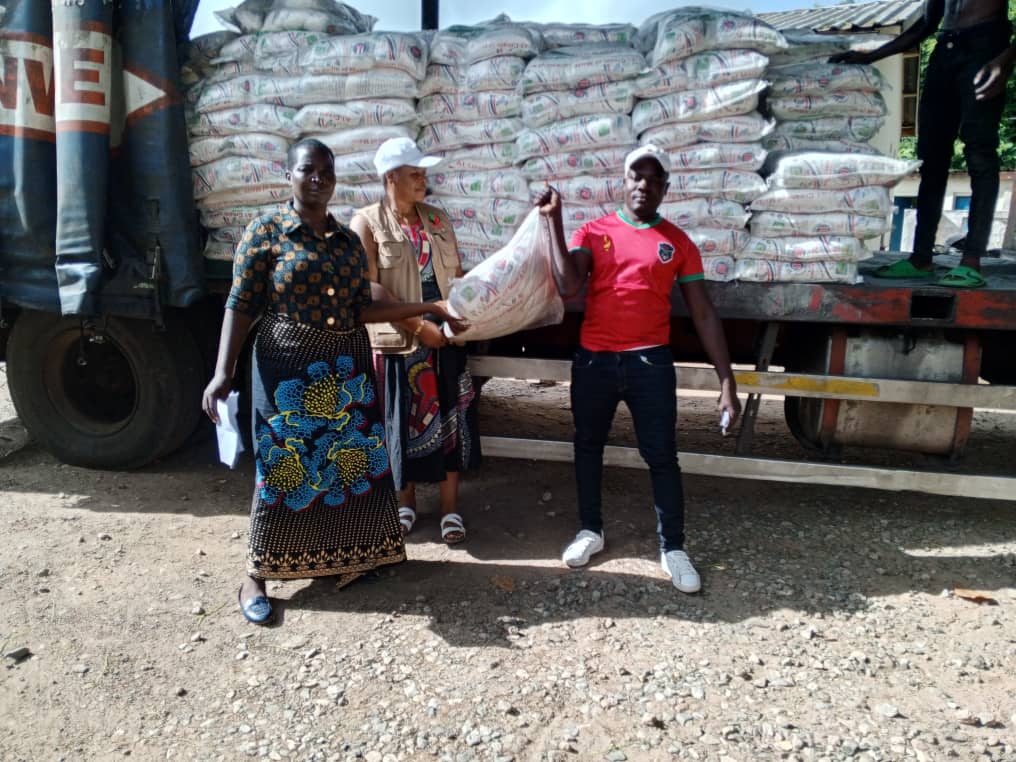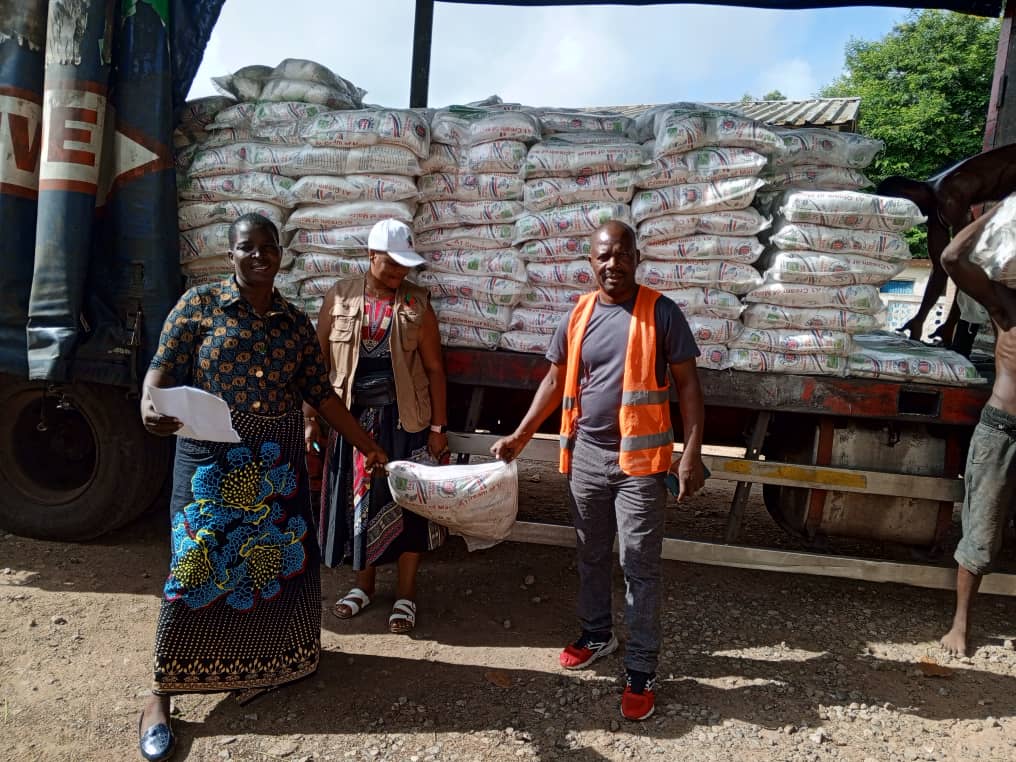
Getrude Witikani (C) handing over a bale of Maize floor to one of the Beneficiaries in Nsanje.
The Malawi Union for Informal Sector (MUFIS) has stepped up to provide crucial food assistance to its members in Chikwawa and Nsanje districts, where a devastating combination of cyclones and drought has plunged thousands into food insecurity. Over 4,500 individuals, representing some of the most vulnerable in the informal sector, received vital food items like maize floor, soya pieces and salt, offering a lifeline in the face of escalating hunger.
Southern region of Malawi has been battered by the increasingly erratic and severe effects of climate change. Recent cyclones, characterized by torrential rains and destructive flooding, have decimated crops and infrastructure, leaving fields submerged and livelihoods destroyed. Adding to the misery, prolonged periods of drought have further hampered agricultural production, resulting in drastically reduced harvests.

These consecutive climate shocks have created a perfect storm, leaving countless families struggling to put food on the table. The reliance on rain-fed agriculture, prevalent in these districts, makes communities particularly susceptible to the vagaries of weather patterns. The resulting low yields have led to widespread hunger, forcing many to resort to desperate measures to survive.
Recognizing the urgent need for intervention, MUFIS mobilized resources to provide immediate relief to its members. The organization, which represents a significant portion of the informal workforce, understood the precarious situation faced by its constituents, many of whom are already living on the margins.
“Our members, who are primarily engaged in informal trading and agriculture, have been disproportionately affected by these climate-related disasters,”
Explained the General Secretary for MUFIS, Mwanda Chiwambala.
He also added that, “The cyclones and droughts have not only destroyed their crops but also disrupted their businesses, leaving them without income and facing severe food shortages adding to the economic challenges the country is already going through. Having noticing this, we decided to lift them up with the little we had”.However, Chairperson for MUFIS in Nsanje, Maria Lazaro said that appreciated the organizations leadership for recognizing the hiccups they are experiencing and find a way of pulling them out of the struggle.
“We are very grateful with the gift we have received. This is really showing that our leaders indeed have a sense of making lives of informal economy workers stable in anyways necessary. I am therefore assuring them that we shall continue to organize more members so that when we speak as informal economy workers, we must be speaking with one voice,” said Maria.
The food distribution initiative targeted the most vulnerable, including women, children, and the elderly. The aid provided a temporary reprieve from hunger, allowing families to focus on rebuilding their lives. However, MUFIS recognizes that this is just a short-term solution and they are planning for long-term strategies are needed to address the root causes of food insecurity and economic resilience.
The MUFIS initiative serves as a stark reminder of the devastating impact of climate change on vulnerable communities. As the frequency and intensity of extreme weather events continue to rise, it is imperative that concerted efforts are made to build resilience and ensure food security for all.
